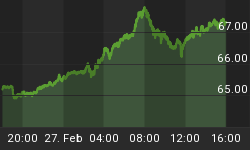A surprise revival in the German Ifo business sentiment index and hawkish comments from some members of the ECB's Governing Council have analysts wondering whether the ECB might not break with tradition and hike interest rates at the August 3 meeting, rather than waiting until the scheduled policy meeting on August 31. While it's true that the ECB has shifted rates at a non-scheduled teleconference-based meeting before, that was in the wake of 9/11 - developments this time around hardly warrant such a sense of emergency. And, the Ifo is just one indicator among many, and probably distorted by the World Cup. Still, the concerns we had earlier this month (June 13: Germany's ZEW Survey: Foreshadowing a Weaker Ifo?), after the expectations index of the June ZEW survey of investor sentiment slid for the fifth consecutive month, have not been borne out. Maybe the rest of this year will continue to be buoyant for Germany and for the wider Euro-zone - but we may have to wait for July data to be sure.
First, the Ifo. June's survey recovered smartly from the slight weakening seen in May, with the main business climate index hitting a new 15-year high of 106.8 (105.7 in May) and the expectations sub-index edging up to 104.2 (after falling to 104.0 in May from 105.5 in April). The retailing component recovered from -5.6 last month to a healthier-looking -0.3, while the manufacturing component climbed to 22.2 from 19.5. Once again, neither higher oil prices nor a rising euro have dented Germany's robust export machine.

The retailing component recovery is very likely to have been boosted by the World Cup - not just because, as host, Germany is benefiting from the influx of fans, but also because the German team did so well in the first two rounds of matches, easily making it into the quarter finals. The GfK consumer sentiment index, due for release tomorrow (28th), and the May retail sales figures, due Friday (30th), are likely to be similarly boosted by football fever. A better gage of sentiment might have to wait until the July Ifo and GfK indices at the end of next month.
However, the Belgian business confidence index also recovered smartly this month, so maybe there is a little more going on here than just the World Cup. After falling to 2.0 in May the main index jumped to an all-time high of 10.1 in June, as the retail sub-index shot up from 0.3 to 11.7 and the manufacturing sub-index climbed from 1.4 to 10.6. Thanks to Belgium's strong trade ties with its neighbors, this confidence index is a leading indicator - about six months out - for GDP growth in the Euro-zone as a whole.

Interestingly, within the manufacturing sub-index the component on the trend in domestic orders recovered from -3 to +15 while the component on the export order trend soared from 0 to +27. So much for manufacturers starting to feel the pinch of high oil prices and a stronger euro. Within the retail trade sub-index, the component on the trend in domestic demand improved from -3 to +7, while the trend for foreign orders recovered from +1 to +11.
In Italy, business confidence posted its biggest jump in about three years in June, with the ISAE index reaching 98.9 s.a., up from 97.0 in May and the highest reading since December 2000. This marks the 13th consecutive rise in business sentiment in the Euro-zone's third largest economy, and takes the index to about 10 points above its long-term average.

And what does all this mean for the ECB? There are no signs that the central bank is planning for a rate hike at next week's meeting (July 6). Rather, attention is focused on August. The meeting schedule for August-September shifts thanks to summer vacation schedules. The August 3 meeting will be a teleconference with no press statement scheduled - i.e., this is not expected to be a policy meeting. The next policy meetings are set for August 31 and Oct 5. Some Governing Council members have been making hawkish statements over the past few days, with comments about growth "gaining momentum" and inflationary risks being "on the upside," and also noting that the Council could shift rates on August 3 if it so chose.
However, Governor Trichet has carefully avoided his indicative "v" word - vigilance - and in an interview published in various newspapers this morning stuck with his statement that the Governing Council "is permanently alert." This sounds like a diplomatic way of encompassing some divergent Council views, and suggests that the Governor is still working to craft a consensus among the 18 members. For now, we expect a 25bp hike on August 31, and a strong possibility of another such move on October 5.
Meanwhile, look for May Euro-zone M3 data the day after tomorrow - June 29. If the annual change increases yet again (from 8.5% in March and 8.8% in April), market expectations of a more aggressive ECB stance will increase.















